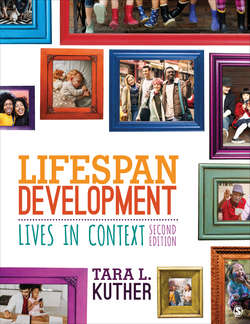Читать книгу Lifespan Development - Tara L. Kuther - Страница 59
На сайте Литреса книга снята с продажи.
Theoretical Perspectives on Human Development
ОглавлениеOver the past century, scientists have learned much about how individuals progress from infants, to children, to adolescents, and to adults, as well as how they change throughout adulthood. Developmental scientists explain their observations by constructing theories of human development. A theory is a way of organizing a set of observations or facts into a comprehensive explanation of how something works. Theories are important tools for compiling and interpreting the growing body of research in human development as well as determining gaps in our knowledge and making predictions about what is not yet known.
Effective theories generate specific hypotheses, or proposed explanations for a given phenomenon, that can be tested by research. It is important to note that this testing seeks to find flaws in the hypothesis—not to “prove” that it is flawless. A good theory is one that is falsifiable, or capable of generating hypotheses that can be tested and, potentially, refuted. As scientists conduct research and learn more about a topic, they modify their theories. Updated theories often give rise to new questions and new research studies, whose findings may further modify theories.
The great body of research findings in the field of lifespan human development has been organized into several theoretical perspectives. As the following sections illustrate, these theoretical perspectives vary greatly in how they account for the developmental changes that occur over the lifespan.
Sigmund Freud (1856–1939), the father of the psychoanalytic perspective, believed that much of our behavior is driven by unconscious impulses.
Wikimedia
